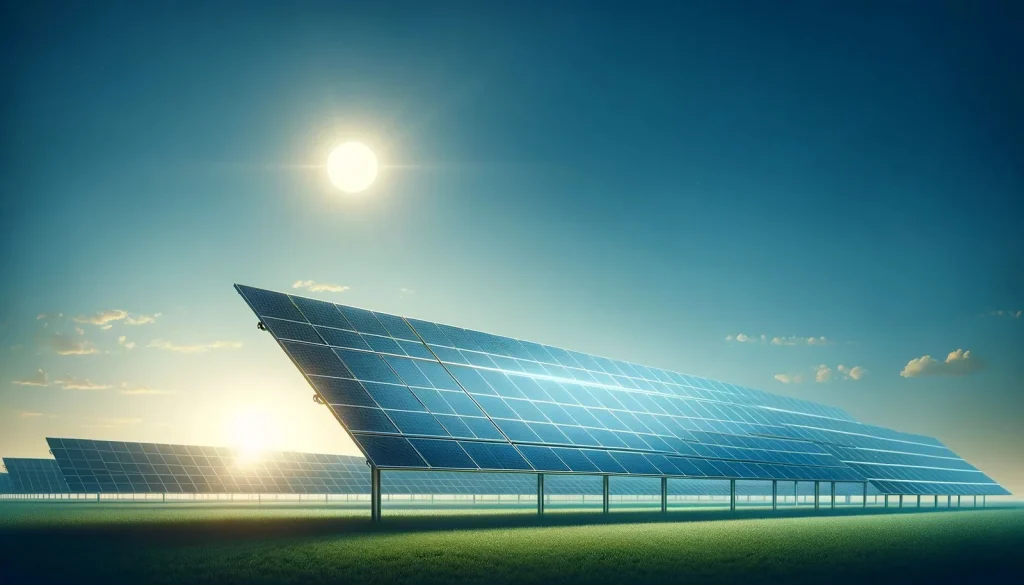
Have you ever wondered how sunlight turns into the electricity that powers your home or office? The answer lies in photovoltaic (PV) energy, a breakthrough technology at the heart of modern solar power systems. This blog dives into what photovoltaic energy is, how it works, and why it’s a game-changer for Pakistan’s energy needs. Plus, I’ll link you to a must-read blog on How Do Surge Protection Devices Work? to help protect your solar investment.
What is Photovoltaic Energy?
Let’s start simple. Photovoltaic energy is the process of converting sunlight directly into electricity using solar panels.
Think of it as nature’s version of alchemy—transforming light into usable power with zero emissions.
The magic happens within solar panels, which are made up of photovoltaic cells. When sunlight touches these cells, it generates electricity. This electricity can power your home, charge your devices, or even feed back into the grid, reducing your energy bills.
How Does Photovoltaic Energy Work?
Here’s the science, broken down:
Sunlight Hits the Solar Panel
Solar panels are made from semiconductors like silicon. When sunlight reaches the panel, photons (light particles) free electrons in the semiconductor material.
Electric Field Creates a Flow
The design of the solar cell creates an electric field, forcing the free electrons to flow in a single direction, generating direct current (DC) electricity.
Inverter Converts DC to AC
Most appliances run on alternating current (AC). The DC electricity generated by the panels is routed through an inverter, which converts it to AC electricity.
Power Your Home or Feed the Grid
The electricity is then used to power your devices or sent back to the grid, where you may even earn credits (net metering).
Why is Photovoltaic Energy Important for Pakistan?
In a country like Pakistan, where power shortages and rising energy costs are the norm, photovoltaic energy is a beacon of hope.
Here’s why:
- Abundant Sunlight: With an average of 300 sunny days a year, Pakistan is perfectly positioned to harness solar energy.
- Energy Independence: By going solar, we can reduce our reliance on imported fuels and create a more sustainable energy mix.
- Cost Savings: Solar panels might seem pricey upfront, but they pay for themselves over time with significant reductions in electricity bills.
- Eco-Friendly: Photovoltaic energy is clean and renewable, helping combat climate change and reducing air pollution.
Real-Life Example: Solar Systems in Pakistan
Take JS Technology’s recent collaboration with ATCO Laboratories to maintain and expand solar systems. Projects like these highlight how businesses can cut energy costs while supporting a greener future. Such initiatives are a clear indication that photovoltaic energy is not just a buzzword but a practical solution to our energy challenges.
How to Get Started with Photovoltaic Energy
If you’re considering going solar, here’s a simple roadmap:
Assess Your Energy Needs
Calculate how much electricity your household or business uses monthly.
Choose the Right System
Depending on your demands and budget, choose from on-grid, off-grid, and hybrid solutions.
Partner with a Reliable Installer
Work with experts like JS Technology, who offer high-quality solar panels and end-to-end services.
Install Surge Protection Devices
Solar systems are a significant investment. Protect them from voltage spikes by installing Surge Protection Devices.
Enjoy the Benefits
Once installed, your solar system will start reducing your electricity costs while promoting sustainable energy.
Breaking Myths About Photovoltaic Energy
Let’s tackle a common misconception:
- Myth: Solar panels don’t work in cloudy weather.
- Truth: While solar panels perform best under direct sunlight, they still generate electricity on cloudy days, albeit at reduced efficiency.
The Future of Photovoltaic Energy in Pakistan
As energy demands grow and fossil fuel reserves shrink, photovoltaic energy is not just the future—it’s the present. With government incentives, falling solar panel prices, and rising electricity costs, there’s never been a better time to switch to solar.
Final Thoughts: A Brighter Tomorrow
Imagine a Pakistan where every rooftop absorbs the energy of the sun. Photovoltaic energy is more than a technology—it’s a movement toward energy independence, economic savings, and environmental sustainability. Ready to make the switch? Start today, and let’s build a cleaner, greener future together.







